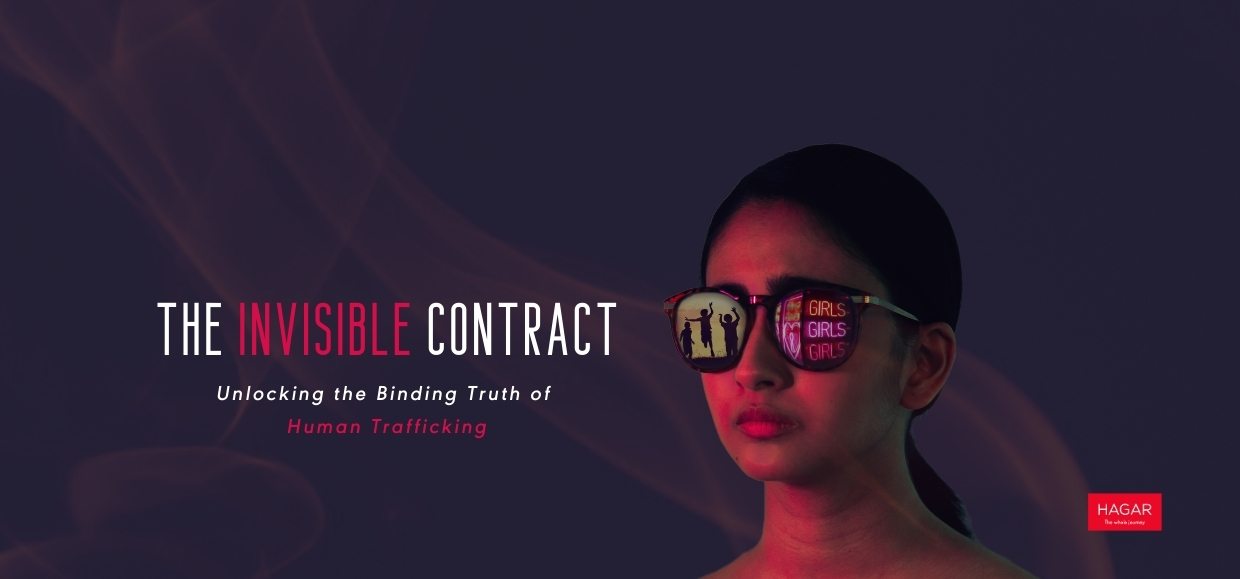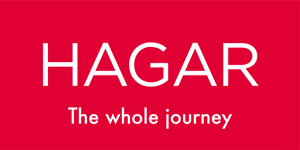
The Hidden Crime of Human Trafficking
How do traffickers target their prey? What keeps victims bound?
What lies beneath this insidious crime that has successfully enslaved women and children across the world?
The Hidden Crime of Trafficking
How do traffickers target their prey? What keeps victims bound? What lies beneath this insidious crime that has successfully enslaved women and children across the world?
A short film project by Hagar Singapore, “The Invisible Contract” brings to light the deceptive terms and conditions that cause an individual to be bound and trapped in exploitation – truths that are hidden from victims and communities.
Using threats, manipulation and assumed debt, traffickers coerce victims into sexual exploitation or forced labour. The obligations of the contract effectively render victims powerless; they are unable to terminate their employment and are forced to comply.
Human Trafficking in Singapore
Singapore is an attractive transit point and destination country for human trafficking. Disguised as legitimate recruitment agents and using fake promises of job opportunities to trick victims, traffickers recruit foreign young women to work in Singapore. In recent years, the majority of persons trafficked to Singapore enter on a work permit for performing artistes.
Since 2010, Singapore has undertaken major efforts to tackle this serious crime. The Singapore Inter-Agency Taskforce on Trafficking in Persons (TIP) was formed in 2010 when Singapore was listed on the Tier 2 watch-list in the Trafficking in Persons report issued by the U.S Department of State. From there, the Singapore Government developed a national plan of action to address TIP issues and enhance the country’s competency in deterring TIP and support the rehabilitation of trafficked victims. 2014 saw the passing of the Prevention of Human Trafficking Act which has since led to the conviction of human trafficking crimes in Singapore.
While there has been much progress in the fight against human trafficking, yet there are still victims who are trapped in exploitative conditions. Cases go undetected because of its clever disguise. And with the COVID-19 affecting businesses and livelihoods, the ripple on human trafficking is clear – More people will be at risk of exploitation as job opportunities wane.
Support us
Your donation is vital to enabling us to combat human trafficking and restore the lives of survivors.
What is human trafficking?
Be a lifeline for trafficking victims
Support us
Your donation is vital to enabling us to combat human trafficking and restore the lives of survivors.
What is human trafficking?
Be a lifeline for trafficking victims
Since 2010, Singapore has undertaken major efforts to tackle this serious crime. The Singapore Inter-Agency Taskforce on Trafficking in Persons (TIP) was formed in 2010 when Singapore was listed on the Tier 2 watch-list in the Trafficking in Persons report issued by the U.S Department of State. From there, the Singapore Government developed a national plan of action to address TIP issues and enhance the country’s competency in deterring TIP and support the rehabilitation of trafficked victims. 2014 saw the passing of the Prevention of Human Trafficking Act which has since led to the conviction of human trafficking crimes in Singapore.
While there has been much progress in the fight against human trafficking, yet there are still victims who are trapped in exploitative conditions. Cases go undetected because of its clever disguise. And with the COVID-19 affecting businesses and livelihoods, the ripple on human trafficking is clear – More people will be at risk of exploitation as job opportunities wane.
Help us transform lives
Join HAGAR to empower a survivor and help them start a new life.
